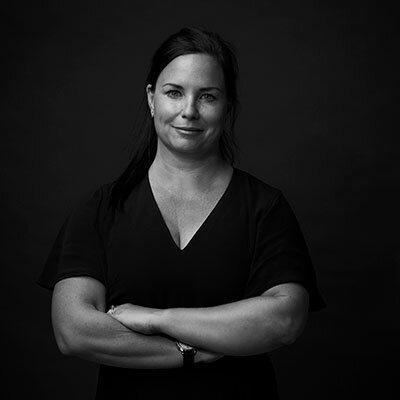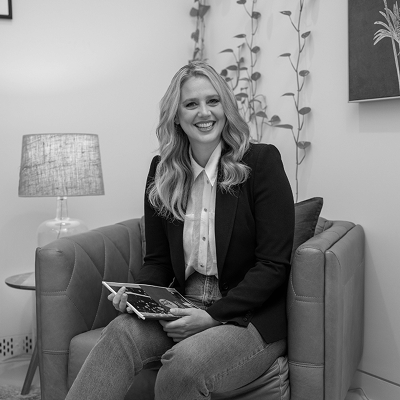
ASKING FOR A FRIEND
How do I talk to an employer about invisible disabilities and not be judged or accused of oversharing?
ASKING FOR A FRIEND - QUESTION
How do you talk to an employer about invisible disabilities without facing judgment or missing opportunities? Tara Hurster, psychologist and founder of The TARA Clinic, and Jasmin Bedir, CEO of Innocean Australia, share practical strategies for navigating these sensitive conversations. From strategic questioning techniques to understanding when you might be oversharing, they cover the delicate balance between transparency and self-protection. Essential guidance for anyone wondering when and how to discuss invisible disabilities with potential or current employers while maintaining professional boundaries.
The Invisible Disability Dilemma: When and How to Share
Navigating job interviews and workplace conversations when you have an invisible disability can feel like walking a tightrope. You want to be honest about your needs, but you're also worried about being judged or missing out on opportunities. The question of how to talk to an employer about invisible disabilities without facing discrimination is one that many people grapple with.
This question was answered by Tara Hurster, psychologist and founder of The TARA Clinic, and Jasmin Bedir, CEO of Innocean Australia. Andy Wright hosted the discussion, bringing his perspective as founder of Never Not Creative and advocate for healthier workplaces.
The Art of Strategic Questioning
Rather than diving straight into personal details, Tara suggests flipping the conversation: "We can talk more in general terms or perhaps a little bit more surface level, so things like asking questions about how an organisation supports their team members who experience stress and anxiety or what kind of mental health support do you provide your team."
This approach serves two purposes. You're subtly indicating that support might be relevant to you, while also interviewing the organisation to see if they're the right fit. As Tara puts it: "If you know this about yourself that it's something that you require extra support for, it's almost unhelpful to go into an organisation that doesn't really make space for that."
Understanding Boundaries and Oversharing
When it comes to how much to share, Tara emphasises that "boundaries are there in order to keep ourselves and other people safe." The key is being mindful of the level of specifics you go into, unless they directly impact the job requirements.
For example, if you're applying to work in a design studio and have a degenerative eye condition, that's something you might need to discuss. But as Tara notes, this is "very very industry specific and it's also very specific to your situations."
Interview the Interviewer
Jasmin reinforces the importance of treating interviews as a two-way street: "If this is something that you personally struggle with or you've got something that you know that is not perceived as normal as a normal functioning human being, you may want to consider how you interview that employer as well from the get go."
The goal is to find an environment where you can "actually flourish and grow so that you will be accepted for what you are." If you're getting red flags early on that suggest it would be difficult to share your needs, that's valuable information about whether this workplace is right for you.
Trust Your Instincts
Jasmin suggests that you'll often naturally find employers you feel comfortable with: "You will either naturally find an employer that you kind of feel comfortable with sharing that and say hey look there's something that's going on, how do you feel about it, or if you get red sort of alarm bells right away that you go it's probably going to be difficult here in this place for me to sort of share this."
Those alarm bells are worth listening to. They might be telling you to consider other workplaces where you'd be more comfortable being open about your needs.
When Oversharing Becomes a Pattern
If you find yourself consistently sharing more than you intended, Tara offers some gentle guidance: "If there's a situation where you notice that for yourself you tend to overshare quite a lot or you're told by people that you give details that maybe aren't necessarily required, then that's also a really great moment to go and seek out some professional therapy."
She explains that when we don't have our own boundaries set, "that tends to show up in oversharing" and can leave you feeling like "you've sort of vomited all of the words and then you walk out of the situation going oh what did I do, what did I say, I said too much." The good news? "That doesn't have to be that way, that can be something that therapy can really really help with."
When Things Go Wrong: The Support Line
If you do face discrimination, harassment, or unfair treatment related to your invisible disability, you don't have to handle it alone. Never Not Creative's Support Line provides free introductory legal advice for individuals in the creative and marketing industries who have experienced bullying, harassment, or workplace mistreatment.
The service, delivered in partnership with Artis Causa, offers confidential consultations with employment lawyers who can help you understand your rights and options. Whether you're dealing with discrimination during the hiring process or facing issues after disclosing your disability at work, professional legal guidance can help you navigate these challenging situations and know where you stand.
Finding Your Balance
Talking to employers about invisible disabilities doesn't have to be an all-or-nothing conversation. You can start by asking the right questions to gauge whether an organisation is supportive, share information at a level that feels comfortable, and trust your instincts about whether a workplace will be accepting.
Remember, the right employer will want to support you to do your best work. If they don't, that says more about them than it does about you. You deserve to work somewhere that values what you bring to the table and provides the support you need to thrive.
our guests
Industry Leader

Jasmin Bedir
Innocean
Mental Health Expert

Tara Hurster
Host

